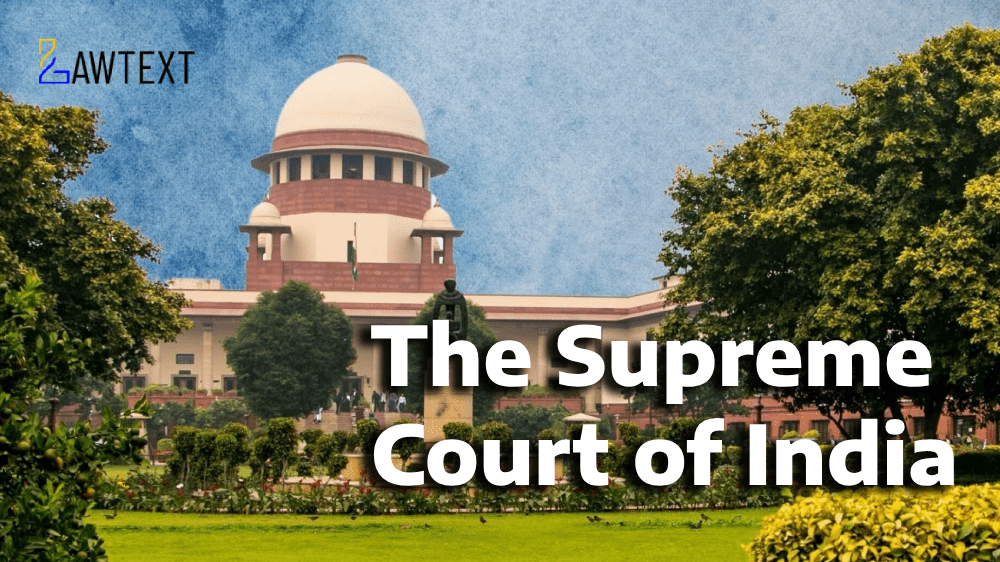CASE NOTE & SUMMARY
The Supreme Court reiterated that Section 28-A of the Land Acquisition Act must be interpreted as a beneficial provision to remove inequality in compensation among landowners affected by the same notification. The Court overturned the High Court's restrictive interpretation based on a later judgment (Ramsingbhai Jerambhai case), holding that the earlier decision in Union of India v. Pradeep Kumari was binding and correctly interpreted the purpose of Section 28-A.
Acts and Sections Discussed
-
Land Acquisition Act, 1894
- Section 4: Preliminary Notification
- Section 11: Award by the Collector
- Section 18: Reference to Court
- Section 28-A: Redetermination of Compensation
- Section 54: Appeal in Civil Court
-
Constitution of India
- Articles 226/227: High Court's Writ Jurisdiction
-
Background of the Case (Paras 3.1–3.6)
- Notification under Section 4 issued on November 17, 2004, acquiring appellants' land for the Kundli-Manesar-Palwal Expressway.
- Compensation was initially determined at ₹12,50,000 per acre in 2006.
- Similarly placed landowners obtained higher compensation through a Reference Court judgment in 2016, raising it to ₹19,91,300 per acre.
- Appellants filed a redetermination application under Section 28-A, which was allowed by the Land Acquisition Collector (LAC) in 2020.
-
High Court Judgment and Appeal (Paras 3.6–3.7)
- The High Court, relying on the Ramsingbhai Jerambhai judgment, quashed the LAC order, stating that Section 28-A applications must be filed within three months of the Reference Court's decision.
- Appellants appealed to the Supreme Court.
-
Conflicting Precedents (Paras 7–9)
- Ramsingbhai case: Limited Section 28-A to judgments of Reference Courts, excluding appellate decisions.
- Pradeep Kumari case: Allowed Section 28-A applications based on subsequent awards, recognizing the provision’s beneficial nature.
-
Beneficial Interpretation of Section 28-A (Paras 10–14)
- The Court highlighted the object of Section 28-A: to prevent inequality among landowners unable to approach the court due to financial or informational constraints.
- Applications can be filed based on any Reference Court award made after Section 28-A's enactment, not restricted to the first award.
-
Ratio Decidendi (Paras 18–24)
- Earlier co-equal Bench rulings are binding unless explicitly overturned.
- Pradeep Kumari, a detailed judgment addressing the legislative intent of Section 28-A, takes precedence over the brief, text-based interpretation in Ramsingbhai.
-
Decision (Paras 25–26)
- The Supreme Court allowed the appeal, upheld the LAC’s redetermination order, and quashed the High Court judgment.
Ratio:
The Supreme Court emphasized that Section 28-A of the Land Acquisition Act is a remedial provision aimed at ensuring fair compensation for disadvantaged landowners. The application of the provision should be interpreted broadly to achieve the legislative purpose of reducing inequality. The limitation period under Section 28-A starts from the date of the award on which the application is based, regardless of whether it is the earliest award.
Subjects:
Redetermination of compensation under Section 28-A of the Land Acquisition Act, with emphasis on its application as a beneficial provision.
Land Acquisition, Compensation, Beneficial Legislation, Redetermination, Inequality in Land Compensation, Section 28-A Interpretation, Justice for Marginalized Landowners.
Citation: 2024 LawText (SC) (12) 108
Case Number: CIVIL APPEAL NO. 13348 OF 2024 (Arising out of SLP(C) No.12221 of 2022)
Date of Decision: 2024-12-10
Case Title: BANWARI AND OTHERS VERSUS HARYANA STATE INDUSTRIAL AND INFRASTRUCTURE DEVELOPMENT CORPORATION LIMITED (HSIIDC) AND ANOTHER
Before Judge: (B.R. GAVAI J. , K.V. VISWANATHAN J.)
Appellant: BANWARI AND OTHERS
Respondent: HARYANA STATE INDUSTRIAL AND INFRASTRUCTURE DEVELOPMENT CORPORATION LIMITED (HSIIDC) AND ANOTHER

